Consent Timelines in New Zealand Councils: A Comprehensive Guide to Processing Times
 By
Trent Bradley
·
8 minute read
By
Trent Bradley
·
8 minute read
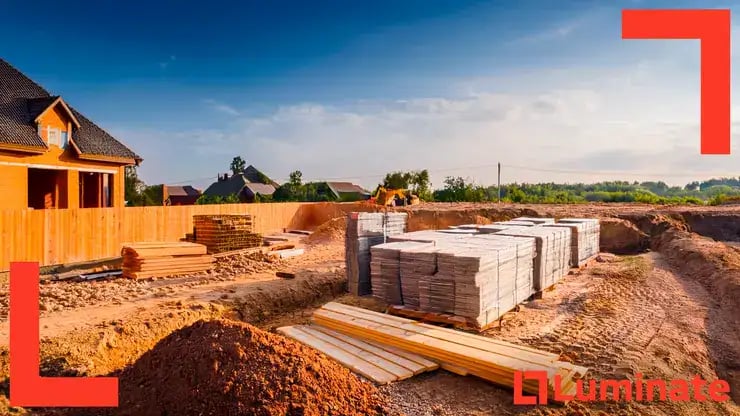
Understanding consent processing timelines across New Zealand councils is crucial for successful development project planning, financing arrangements, and investment decision-making. Consent processing times vary significantly between councils, application types, and market conditions, creating both opportunities and challenges for property developers. This detailed guide analyzes consent timelines across major New Zealand councils, identifies factors affecting processing speed, and provides strategies for optimizing consent timing.
Understanding Statutory Timeframes
New Zealand's Resource Management Act establishes statutory processing timeframes that provide baseline expectations while allowing extensions under specific circumstances.
Standard Processing Times: The RMA requires councils to process non-notified resource consent applications within 20 working days of acceptance. This timeframe applies after councils confirm applications are complete and ready for processing, not from initial submission.
Clock Start Mechanisms: Processing time calculations begin when councils formally accept applications as complete rather than initial submission dates. Councils may request additional information causing clock suspension until requirements are satisfied.
Notification Impact: Publicly notified applications face significantly extended processing times including 20 working days for submission periods plus additional time for assessment and potential hearings. Notified applications typically take 6-12 months compared to 1-3 months for non-notified applications.
Extension Provisions: Councils may extend processing timeframes with applicant agreement or in specific circumstances including complex technical assessment, external consultation requirements, or applicant-requested delays.
Building Consent Timeframes: Building consent applications must be processed within 20 working days under the Building Act, though complex applications may receive extensions. Infrastructure building consents often require longer processing due to engineering complexity.
Stop-the-Clock Provisions: Both resource consent and building consent processing may be suspended when additional information is requested, specialist input is required, or external approvals are needed.
Auckland Council Processing Performance
As New Zealand's largest council, Auckland's consent processing performance significantly impacts national development activity and provides benchmarks for other councils.
Resource Consent Performance: Auckland Council typically processes non-notified resource consents within 25-40 working days, exceeding statutory timeframes but reflecting application complexity and volume pressures. Complex discretionary applications may require 60-90 working days.
Building Consent Processing: Auckland building consents typically process within 20-35 working days for standard residential applications, extending to 40-60 working days for complex commercial or infrastructure projects.
Subdivision Consent Timing: Auckland subdivision consents typically require 8-16 weeks for straightforward applications, extending to 6-12 months for complex subdivisions requiring extensive infrastructure or facing community opposition.
Fast-Track Options: Auckland offers fast-track processing for qualifying applications including residential intensification projects and developments aligned with strategic objectives. Fast-track options can reduce processing times by 30-50%.
Pre-Application Benefits: Auckland's comprehensive pre-application services can reduce formal processing times by 20-40% through early issue identification and resolution. Pre-application investment typically delivers significant time savings.
Seasonal Variations: Auckland consent processing experiences seasonal variations with slower processing during summer holiday periods and peak application volumes affecting processing capacity throughout the year.
Quality Improvements: Recent system improvements including digital processing and increased staffing have reduced average processing times while improving application quality and customer service.
Wellington Region Council Performance
Wellington region councils demonstrate varied performance reflecting different council sizes, resources, and market pressures.
Wellington City Processing: Wellington City typically processes resource consents within 30-50 working days for non-notified applications, with building consents averaging 25-40 working days. Heritage and earthquake considerations often extend processing times.
Porirua and Hutt Valley: Smaller Wellington region councils often achieve faster processing times averaging 20-35 working days for resource consents due to lower application volumes and more direct staff relationships.
Kapiti Coast Performance: Kapiti Coast District Council typically processes applications efficiently with resource consents averaging 25-40 working days and building consents within 20-30 working days reflecting coastal development expertise.
Regional Council Coordination: Greater Wellington Regional Council processes discharge and water permits within 25-45 working days, though complex environmental assessments may require 60+ working days.
Earthquake Resilience Impact: Post-earthquake building standards and assessment requirements often extend building consent processing times by 10-20 working days while ensuring structural adequacy and public safety.
Transport Integration: Wellington region councils emphasize transport integration in consent assessment potentially extending processing times but supporting integrated urban development outcomes.
Canterbury and Christchurch Processing
Canterbury region councils demonstrate varied performance influenced by post-earthquake recovery processes and streamlined development frameworks.
Christchurch City Processing: Christchurch City Council typically processes resource consents within 20-35 working days for non-notified applications, benefiting from post-earthquake process improvements and digital systems.
Building Consent Efficiency: Christchurch building consents typically process within 15-25 working days reflecting streamlined processes and experienced assessment teams managing ongoing rebuild activity.
Selwyn and Waimakariri: Fast-growing districts surrounding Christchurch often experience processing pressures with resource consents averaging 25-45 working days and building consents requiring 20-35 working days.
Environment Canterbury: Regional council processing typically averages 25-40 working days for water permits and discharge consents, though complex environmental assessments may require extended timeframes.
Recovery Framework Benefits: Christchurch's post-earthquake planning frameworks often facilitate faster consent processing through clearer policy direction and streamlined assessment criteria.
Infrastructure Integration: Canterbury councils emphasize infrastructure integration potentially extending processing times but ensuring development alignment with planned infrastructure investment.
Provincial City Council Performance
Smaller city councils often provide faster, more personal consent processing while potentially facing capacity constraints for complex applications.
Hamilton City Processing: Hamilton typically processes resource consents within 20-30 working days with building consents averaging 15-25 working days. Growth pressures sometimes create processing delays during peak periods.
Tauranga City Performance: Tauranga's rapid growth creates processing pressures with resource consents averaging 30-45 working days and building consents requiring 20-30 working days. Council capacity improvements are addressing historical delays.
Palmerston North Efficiency: Palmerston North typically achieves efficient processing with resource consents within 20-35 working days and building consents averaging 15-25 working days reflecting good council capacity and systems.
Rotorua and New Plymouth: These councils typically process applications efficiently with resource consents averaging 25-35 working days though tourism and industrial considerations may extend processing for relevant applications.
Dunedin Performance: Dunedin City Council typically processes resource consents within 25-40 working days with heritage considerations potentially extending assessment for relevant applications.
Nelson and Marlborough: These councils often achieve efficient processing reflecting lower application volumes and experienced staff, with resource consents typically processing within 20-30 working days.
District Council Processing Variations
Smaller district councils demonstrate significant processing time variations reflecting different resources, expertise, and application volumes.
Growth District Pressures: Fast-growing districts including Thames-Coromandel, Queenstown-Lakes, and coastal lifestyle areas often experience processing delays due to capacity constraints and application volume pressures.
Rural District Efficiency: Rural districts with stable application volumes often achieve efficient processing with resource consents typically within 15-30 working days and building consents processing within 10-20 working days.
Tourism District Challenges: Tourism-dependent districts face seasonal application variations creating processing pressures during peak development periods while maintaining adequate capacity year-round.
Lifestyle Development Processing: Districts with significant lifestyle development often develop specialized expertise enabling efficient processing of rural-residential and lifestyle applications.
Resource Constraints: Smaller councils may face resource constraints affecting processing capacity particularly for complex applications requiring specialist expertise or extensive consultation.
Meeting Cycle Impact: District councils using committee decision-making may experience processing delays related to meeting schedules, particularly for applications requiring elected member decisions.
Factors Affecting Processing Speed
Multiple factors influence consent processing speed creating opportunities for optimization and timeline management.
Application Quality: High-quality applications with comprehensive information and professional preparation typically process faster than incomplete or poorly prepared submissions. Investment in application quality typically reduces processing times significantly.
Professional Relationships: Strong relationships between applicant professionals and council staff facilitate efficient processing through improved communication and collaborative problem-solving.
Pre-Application Investment: Comprehensive pre-application consultation and preparation typically reduces formal processing times by 20-50% through early issue identification and resolution.
Application Complexity: Simple applications meeting plan requirements process faster than complex discretionary applications requiring extensive assessment and consultation.
Council Workload: Processing times vary with council workload cycles, seasonal patterns, and staff availability. Understanding council capacity helps optimize application timing.
Market Conditions: High development activity creates processing pressures while low activity periods may enable faster processing due to available council capacity.
Political Environment: Contentious political environments or recent policy changes may slow processing while supportive development environments often facilitate faster assessment.
Strategies for Optimizing Processing Times
Strategic approaches can significantly reduce consent processing times while improving approval prospects and maintaining professional relationships.
Early Engagement: Comprehensive pre-application engagement including concept meetings, site visits, and stakeholder consultation often reduces formal processing times while building council support.
Quality Applications: Investment in high-quality application preparation including professional documentation, comprehensive assessment, and clear presentation typically accelerates processing significantly.
Professional Expertise: Engaging experienced professionals with strong council relationships and relevant expertise facilitates efficient processing through effective communication and problem-solving.
Staged Submissions: Strategic staging of complex applications may enable faster processing of initial phases while preparing subsequent submissions based on early feedback and approvals.
Consultation Management: Proactive consultation with affected parties and stakeholders often prevents opposition and notification requirements that significantly extend processing times.
Response Efficiency: Prompt, comprehensive responses to council requests for additional information maintain processing momentum while demonstrating professional competence.
Relationship Investment: Long-term investment in positive council relationships through professional engagement and collaborative approaches delivers ongoing processing benefits.
Digital Processing and System Improvements
Technology adoption across New Zealand councils is improving processing efficiency while creating new opportunities for timeline optimization.
Online Application Systems: Digital application platforms enable faster submission and processing while reducing administrative delays. Online systems often provide real-time tracking and communication capabilities.
Electronic Document Management: Digital document systems improve information sharing and processing efficiency while maintaining comprehensive application records throughout assessment processes.
Automated Processing: Some councils implement automated processing for standard applications reducing manual assessment time while maintaining quality outcomes.
Digital Consultation: Online consultation platforms enable broader stakeholder engagement while potentially reducing consultation timeframes and administrative complexity.
Integration Systems: Integrated council systems connecting planning, building, and engineering functions can reduce internal processing delays while improving coordination between departments.
Remote Assessment: Digital technologies enable remote site assessment and virtual consultations potentially reducing scheduling delays while maintaining assessment quality.
Monitoring and Performance Measurement
Understanding council performance measurement and monitoring helps developers assess processing prospects and optimize application strategies.
Performance Reporting: Most councils publish consent processing performance statistics including average processing times, statutory compliance rates, and customer satisfaction measures.
Benchmarking Analysis: Comparing council performance against national averages and peer councils provides context for processing expectations and optimization opportunities.
Trend Analysis: Historical processing performance data helps identify trends, seasonal patterns, and capacity constraints enabling strategic application timing.
Customer Feedback: Council customer satisfaction surveys and feedback mechanisms provide insights into processing quality and improvement opportunities.
System Improvements: Council investment in system improvements, staff training, and process optimization often delivers sustained processing time reductions.
External Auditing: Independent audits of council consent processing provide objective assessment of performance and improvement recommendations.
Managing Timeline Risks and Delays
Effective timeline management requires understanding delay risks and implementing appropriate mitigation strategies.
Contingency Planning: Development project planning should include realistic timeline contingencies reflecting historical council performance and application complexity.
Alternative Strategies: Consider alternative development approaches that may achieve faster consent processing through different design solutions or application pathways.
Escalation Procedures: Understanding council escalation procedures and complaint processes provides options for addressing unreasonable delays or processing issues.
Political Engagement: Appropriate political engagement may help resolve processing issues while maintaining professional relationships and avoiding process disruption.
Legal Options: Legal remedies for unreasonable processing delays exist but should be considered carefully due to cost implications and potential relationship damage.
Market Timing: Consider market timing implications of processing delays including funding costs, market condition changes, and competitive positioning impacts.
Future Trends in Processing Performance
Consent processing performance continues evolving in response to technology advancement, resource management reform, and changing council capabilities.
Resource Management Reform: Government reforms to planning legislation may significantly change processing requirements and timeframes while potentially simplifying some approval pathways.
Technology Integration: Continued technology adoption will likely improve processing efficiency while creating new consultation and assessment opportunities.
Capacity Building: Council investment in staff capacity and expertise development may improve processing performance while managing increasing application volumes.
National Standards: Development of national processing standards and performance benchmarks may drive consistency and improvement across councils.
Performance Accountability: Increasing focus on council performance accountability may drive processing improvements while ensuring adequate service delivery.
Customer Expectations: Rising customer expectations for efficient service delivery continue driving council performance improvement and system enhancement initiatives.
Regional Planning Integration
Processing timelines increasingly integrate with regional planning frameworks creating coordination requirements and potential efficiencies.
Multi-Council Coordination: Projects spanning multiple council boundaries require coordination potentially extending processing times but ensuring integrated assessment.
Regional Policy Implementation: Regional policy direction increasingly influences local consent processing potentially streamlining assessment for aligned developments.
Infrastructure Planning: Integration with regional infrastructure planning can accelerate consent processing for developments supporting planned infrastructure investment.
Strategic Development Areas: Planned development areas often receive prioritized processing reflecting strategic development objectives and planned infrastructure provision.
Working with Processing Timeline Specialists
Professional expertise in consent processing optimization provides valuable support for timeline management and development success.
At Luminate Finance, we understand that consent processing timelines significantly impact development project success and work closely with developers to optimize consent strategies and timeline management.
Our extensive experience across all New Zealand councils provides valuable insights into processing performance, optimization strategies, and timeline management approaches that support successful development outcomes.
We often participate in consent timeline planning during project feasibility assessment, helping developers understand realistic processing expectations while structuring development finance that accommodates consent timing variations.
Our comprehensive approach includes review of consent strategies, timeline optimization, and contingency planning that aligns financing arrangements with realistic consent processing expectations.
Through our involvement in consent processes across diverse councils and application types, we've developed deep understanding of processing performance patterns and effective timeline management strategies.
Our network of professional relationships includes experienced planning consultants and council specialists who provide expert guidance on processing optimization and timeline management for complex development projects.
Ready to optimize your consent processing timelines with expert guidance? Contact Luminate Finance today to discuss how our comprehensive understanding of council processing performance can support your development success through realistic timeline planning and effective consent strategies.

Trent Bradley
Trent Bradley is a New Zealand financial advisor specializing in property-backed finance and investment consulting. With over 26 years of experience running his mortgage broking business, he has helped wholesale investors access high-yield property-backed loan opportunities. For the past 12 years, Trent has led Luminate Finance, a New Zealand finance company dedicated to connecting investors with secure property investment solutions.






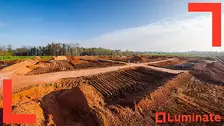











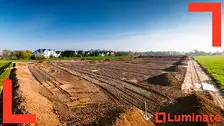








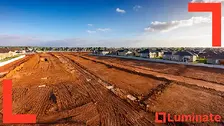

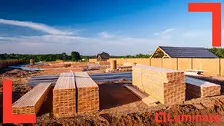



.png?//48413319.fs1.hubspotusercontent-ap1.net/hubfs/48413319/Featured%20images%20(14).png&width=247&height=126&name=Featured%20images%20(14).png)




